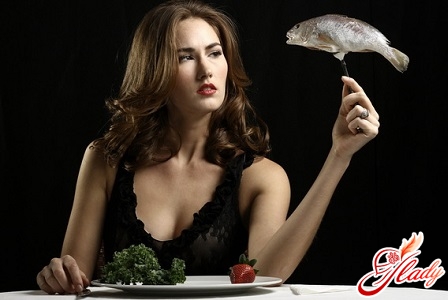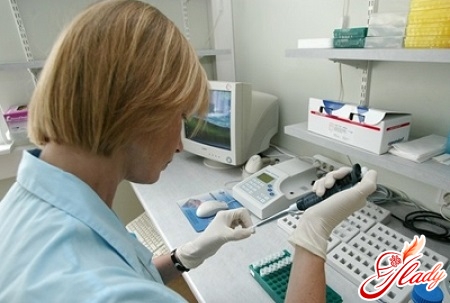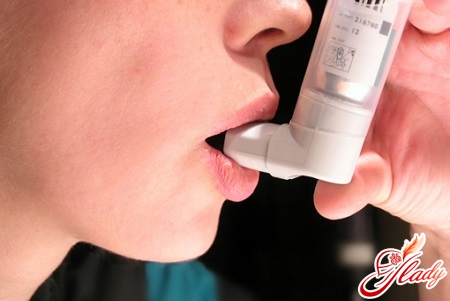 An allergic reaction may occuralmost anything. Medicines, chemistry (both domestic and industrial), some types of products - in all this can be the same alien protein, which is exactly what our immune system responds to. To cope with the manifestations of this disease, it is necessary not only to drink drugs, but also to sit on a rigid diet.
An allergic reaction may occuralmost anything. Medicines, chemistry (both domestic and industrial), some types of products - in all this can be the same alien protein, which is exactly what our immune system responds to. To cope with the manifestations of this disease, it is necessary not only to drink drugs, but also to sit on a rigid diet.
Features of proper nutrition
People who have experienced this disease do nothears firsthand how important food plays in this case. Nutrition for allergies should be balanced to avoid such a nuisance as vitamin deficiency. At the same time, the menu should not contain products rich in carbohydrates. And the less often you use such food, the better. For example, it will be necessary to exclude sugar, honey, chocolate, alcohol for a while, since carbohydrates, which are part of their composition, are quickly absorbed. And sucrose at the same time stimulates the fermentation process. Can not you drink tea without sweetening it? Use a special sugar substitute. As for food rich in proteins and fats, it should not be more than your body requires. When designing a menu for yourself, do not forget to take this into account. Note: Whatever you cook the dish, there must be a minimum amount of salt. Of course, at first it is difficult to eat fresh dishes, but then you will get used to it. The same applies to sauces, seasonings, spicy ingredients, spices, smoked products. The first time a sick person is contraindicated in any meat, fish and mushroom dishes. If you need to make soup or borsch, make it on vegetable broth. And fry it (onion plus oil) can not, as we are used to doing. And in general, no food is needed! Only stew, cook, bake, previously not marinating and not adding seasonings. If you follow these rules, you can avoid deterioration. Plus, the allergen (if it is in a product) will stop so quickly absorbed. And after a while you will get much better: all the symptoms will go away and your health will improve.
Causes of food allergy
In the twenty-first century, people are increasinglywith manifestations of food allergy. And the reason lies not only in poor heredity or ecology. Rather, the producers are responsible, adding to the food products such an amount of dyes, stabilizers, preservatives and other mucks that the organism of even the most healthy person can not withstand such a load. By the way, pesticides and fertilizers used in agriculture also affect our health. Unfortunately, all this is not always on time out of the same watermelons and zucchini. Plus, excessive love of chemistry (both household and medicinal) also contributed to a decrease in our immunity and the emergence of an allergy to food. 
What foods are allergies?
In fact, an allergy can be on anything,beginning with strawberries, finishing with wheat. It's simply impossible to list everything. But most often it concerns eggs, milk, sea inhabitants (mussels, squid, mollusks, fish), nuts, chocolate, citrus fruits. Less often our body reacts to a certain type of meat products. It can be either a bird, or pork, or beef. Sometimes milk immunity develops. But here you should be careful, since allergies and intolerance are two different things. If, for example, you are ill with both cow and goat's milk, it means that your body does not produce the substance responsible for the assimilation of lactose. By the way, in many adult people this happens. Often, such people do not eat any dairy products, be it cottage cheese, butter, sour cream, etc. Even chocolate, which contains this ingredient, can cause a very violent reaction, right up to the Quincke's edema. As mentioned above, eggs are one of the most powerful allergens. The reason lies in the protein, rich in albumin. But if it is heat-treated (welded or baked), then this substance becomes less active. As a result, you can eat buns or salads. But to drink raw eggs is not recommended - only worse from this will be. As for fish, it, unfortunately, practically does not lose allergenic properties. Even if you brew it or bake it, it will be bad for an allergy sufferer after eating it. But it does not necessarily mean that all marine or river inhabitants cause this disease. Often the body reacts either to crabs and squid, or to crayfish and oysters, or to red meat. And so on from the list. To find out what you are allergic to, you'll have to go to the clinic for testing and testing. It can also help to keep a diary in which to indicate the foods and dishes eaten at that particular moment, as well as your feelings. In the end, you will be able to identify the allergen. After this, you will need to exclude from the diet each product that falls into the risk zone. After a week, you can gradually enter everything in the menu, but in small quantities. And as soon as the symptoms of the allergy reappear, you will receive irrefutable confirmation of the assumptions made earlier. Another option that is used to identify the allergen is a strict diet. It differs from the previous one in that the first three days a patient should not eat anything at all. You can only drink tea, of course, not very strong. It can also be slightly sweetened with sugar. During this time the organism has time to clear it allergen. On the fourth day in the diet are introduced cereals and bread products. In a couple of days you can use dairy products. To exclude other types of allergies (for example, dust, household chemicals, pets and plants), you will be asked to do skin tests in the hospital. A small scratch or shoulder area is injected with an allergen. And if the results are negative, that is, you will not become ill, then you have intolerance of the products.
How does the food allergy manifest itself?
In fact, it all depends on your body. The sensitivity to this or that product can be so high that a person immediately suffocates, nausea, headache, vomiting, swelling. In this case, only one smell of an intolerant substance is sufficient to show the listed symptoms. Therefore, food for allergies should be carefully controlled so that in some dish, the forbidden ingredient is not accidentally found. Otherwise, if you make a mistake, an aggravation may start. You must be attentive, listen to your feelings. And if the first signs of allergy (weakness, chills, itching, swelling, rash) are discovered, take a special medicine immediately or call an ambulance. If the symptoms of allergies are not pronounced, everything will go away after a couple of days. 
How to eat with allergy
As was said above, in the beginning from the dietthe patient excludes everything that can cause allergies. Then, when the exacerbation passes, you can try to accustom your body to foods that cause not severe symptoms. Initially, very small amounts of such ingredients are introduced into the food (start with a pinch of a substance diluted in an abundant amount of water), gradually increasing the dose. The same products, which do not play any important role in nutrition, can generally be permanently excluded. For example, you can easily live without lemons, strawberries, honey, chocolate, fish, etc. on the list. Much more difficult is the situation with what is included in some food (eggs, milk, cereals). In this case, you need to dilute all the liquid (for example, from fruit to prepare compotes), give in to heat treatment. During the period of training your body to such products you should be careful. So, any experiments should be conducted under supervision. If you suddenly become ill, your family will be able to provide first aid and call an ambulance. Plus, the first aid kit should always contain drugs that relieve allergy symptoms.
What you can eat with an allergy
Depending on what you are allergic to, yourThe attending physician can offer you a special diet, the main task of which is to purify the body of foreign protein. After the period of exacerbation is over, you will need to continue to follow a certain regimen, so that there is no repeated contact with the allergen. Patients usually recommend the following products:
- Flour products
Daily rate - no more than 250-350 gr (independing on lifestyle and body weight). Any unhealthy flour products, bran or rye bread are allowed. But with the products made by their wheat, you should be careful. Also, do not buy pies with stuffing.
- Soups
As stated earlier, one should not eat liquid dishes,cooked on a steep meat broth. You can eat borsch, beetroot soup. However, in this case, there is one rule - only allowed products are used. Even if you do not have any allergies to fish or mushrooms, it is better not to experiment yet.
- Meat
Low-fat varieties of poultry and beef are allowed. Meat is either cooked by steaming, or cooked, or baked in the oven. Also allowed dietary sausages, which include no dyes, no flavor additives (for example, glutamate), or stabilizers.
- A fish
Fish is allowed, of course, if you do not haveher allergies. Again, choose only low-fat varieties. From the fillet you can cook steamed chops. You can not eat canned food, be it in your own juice or in tomato. There are supplements that adversely affect your health.
- Milk products
It is best to choose an ultra-pasteurizedMilk, as it passes several stages of processing and does not contain dangerous substances. Allowed and sour milk drinks (kefir, fermented milk, yogurt), the only thing is - the product must be natural, without palm oil and dry powder. The same is true for cottage cheese with low-fat fresh cheese.
- Eggs
Earlier it was mentioned that eggs belong to the categorydangerous and even banned products of allergies. But in the majority it concerns raw. Therefore, cook them either soft, or make steam omelettes (preferably without yolk). Also allowed to use eggs in baking.
- Garnish
During an exacerbation, you can eat only porridge fromallowed grains (buckwheat, pearl barley, millet), then gradually it is recommended to introduce in the diet pasta, legumes. Important! Garnishes are prepared on the water, without the addition of milk, sugar, oils, seasonings.
- Vegetables
Nutrition for allergies should be balanced. A person should not consume too much carbohydrate, as this can lead to a repeated exacerbation. Therefore, in this case it is recommended to lean on cabbage, cucumbers, eggplant, pumpkin, zucchini. In small dosages, potatoes are allowed. Be careful with tomatoes, as they cause allergies. Ways of cooking vegetables can be different. It is allowed to stew, cook, bake, make salads. Note: when heat treated in some products, the allergen is destroyed or its effect is weakened. Therefore, it is better not to eat vegetables raw at first.
- Fruit
When choosing fruits and berries, make sure that theywere grown in your area. The fact is that overseas exotic delicacies can inflict the greatest harm to your health, up to poisoning. Before transportation, many manufacturers treat fruits with special chemicals or wax to keep them longer.
- Sweets
Without glucose, our brain simply can not be normalwork. Yes, and how to cheer yourself up, if chocolate and condensed milk can not be. In fact, there are many alternatives. For example, you can eat jelly. It is not only tasty, but also useful. Covering the stomach, jelly does not let allergens be absorbed. Just remember that it needs to be cooked, not bought in packs. After reading the composition of these, you will understand why it is better not to use store products. Also allowed a small number of sweets made with sorbitol or xylitol. Naturally, you need to comply with the norm - a maximum of 100 g per day, not more. Otherwise, walk you with a rash and itch for the next two days. And this despite the fact that they are considered safe.
- Sauces
Categorically forbidden mayonnaise, ketchup,mustard. But you can cook homemade sauces on vegetable broths. Only no seasonings, fats, spices, pepper in them should not be. Try to add salt as little as possible, which delays the water in the body, which can again cause an allergic reaction.
- Beverages
You can drink light tea, juices from the allowedvegetables and fruits, compotes, decoctions. A day should drink at least 1.5 liters of fluid. And do not forget about mineral or purified water without gas. We exclude all alcoholic beverages. In the future, it is better to refrain from cheap alcohol (especially beer and wine), since there is too much chemistry in such products. Also you can not drink coffee. 
How to avoid the occurrence of allergies in the future
First, check with your doctor,what products you can use in the future. To identify the banned, you will have to donate blood to IgE. And clearly adhere to the dietician's recommendations, since even banal parsley can lead to a relapse. Secondly, prepare everything yourself. No what kind of convenience foods and fast foods. No time to mess with cooking cutlets and pancakes? Do it all in one of the days off, freeze and put in a bag. When you need to cook something quickly, just roll the workpiece into a frying pan or warm it up in a microwave oven (depending on what kind of dish it is). If you still have to buy some finished product (canned tomatoes, peas, cucumbers, stewed meat, etc.), always read the composition beforehand. And if there is too much chemistry and unfamiliar abbreviations for you, you better give up this option. Find completely natural products are unlikely to succeed, as in the canned add substances that do not give the content of the abyss. But the less muck there will be, the better. In restaurants, cafes and other similar establishments always check with the waiters, from what this or that dish consists. And be sure to ask him to warn the cook that you have, for example, pollen, pepper or some substance allergies. Little is there any secrets stored in their kitchen. So do and away. And if you follow the listed rules, the allergy will not be so terrible.









